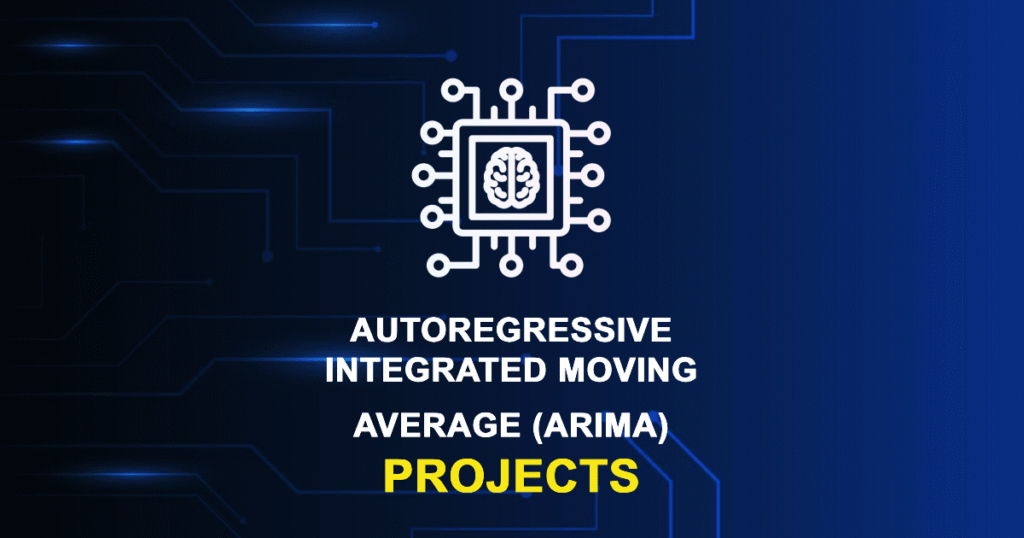Autoregressive Integrated Moving Average (ARIMA) projects for M.E., M.Tech, Masters, MS abroad, and PhD students. These Autoregressive Integrated Moving Average (ARIMA) projects are designed for final year project submissions, research work, and publishing research papers. These research projects guide students to learn, practice, and complete their academic submissions successfully. Each project includes complete source code, project report, PPT, a tutorial, documentation, and a research paper.

Latest Autoregressive Integrated Moving Average (ARIMA) Projects
-
Machine Learning Approaches for Power System Parameters Prediction – A Systematic Review
The main objective of this project is to improve prediction accuracy in power system networks. It aims to predict load, voltage, and frequency using machine learning models. The project focuses on using network topology behavior as input instead of isolated bus data. It tests different models like regression, decision tree, and LSTM. The goal is to provide better planning and reliability for dynamic and interconnected power systems.
Did you like this research project?
To get this research project Guidelines, Training and Code…
How We Help You with Autoregressive Integrated Moving Average (ARIMA) Projects
At UniPhD, we provide complete guidance and support for Autoregressive Integrated Moving Average (ARIMA) projects for MTech, ME, Master’s, and PhD students. Our team assists you at every stage from topic selection to coding, report writing, and result analysis.
We also help you choose a suitable IEEE base paper and guide you in developing your project using Python-based tools and frameworks such as TensorFlow, Keras, PyTorch, Scikit-learn, OpenCV, Flask, and Streamlit. In addition, we support implementation and simulation through platforms like MATLAB, Simulink, and NS2, depending on project requirements.
Our experts have extensive experience guiding students in computer science, electronics, and electrical domains, ensuring successful completion of academic and research projects.
Autoregressive Integrated Moving Average (ARIMA) Thesis and Dissertation Writing
UniPhD has a team of experienced academic writers who specialize in Autoregressive Integrated Moving Average (ARIMA) research and thesis development. We offer fast-track dissertation writing services to help you complete your Autoregressive Integrated Moving Average (ARIMA) thesis or dissertation smoothly and on time.
Our M.E., M.Tech, Masters, MS abroad, and PhD theses are developed according to individual university guidelines and checked with plagiarism detection tools to ensure originality and quality.
Autoregressive Integrated Moving Average (ARIMA) Research Paper Publishing Support
UniPhD provides complete support for research paper writing, editing, and proofreading to help you publish your work in reputed journals or conferences. We accept documents in Microsoft Word, RTF, or LaTeX formats and ensure your paper meets publication standards.
Project Synopsis and Presentation Support
We help you prepare your project synopsis, including the problem definition, objectives, and motivation for your dissertation. Our team also provides complete PPT, documentation, and tutorials to make your final presentation successful. You can also download complete project resources, including source code, a project report, a PPT, a tutorial, documentation, and a research paper for your Autoregressive Integrated Moving Average (ARIMA) final year project.
Autoregressive Integrated Moving Average (ARIMA) Research Support for PhD Scholars
UniPhD offers advanced Autoregressive Integrated Moving Average (ARIMA) research projects designed specifically for PhD scholars. We provide end-to-end support for your research design, implementation, experimentation, and publication process.
Each project package includes comprehensive documentation, including the research proposal, complete source code, research guidance, documentation, research paper, and thesis writing support, helping you successfully complete your doctoral research and academic publications.
